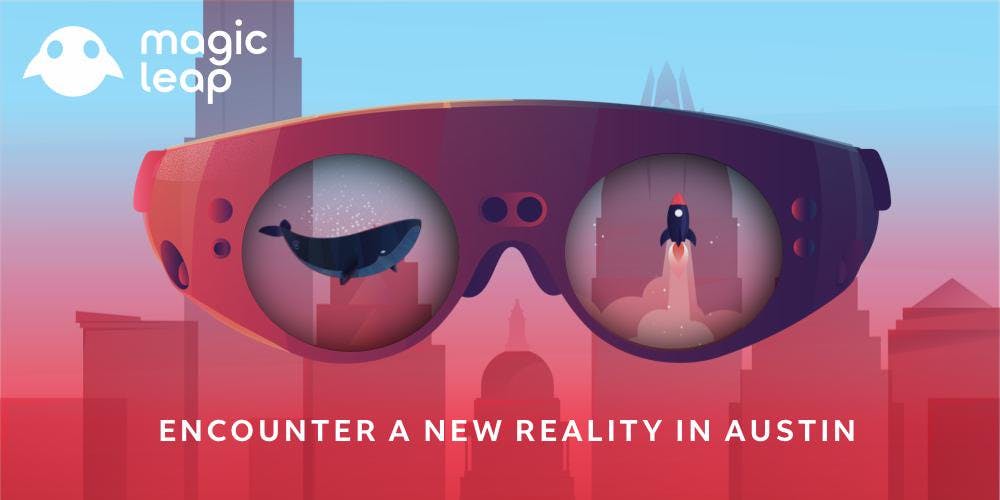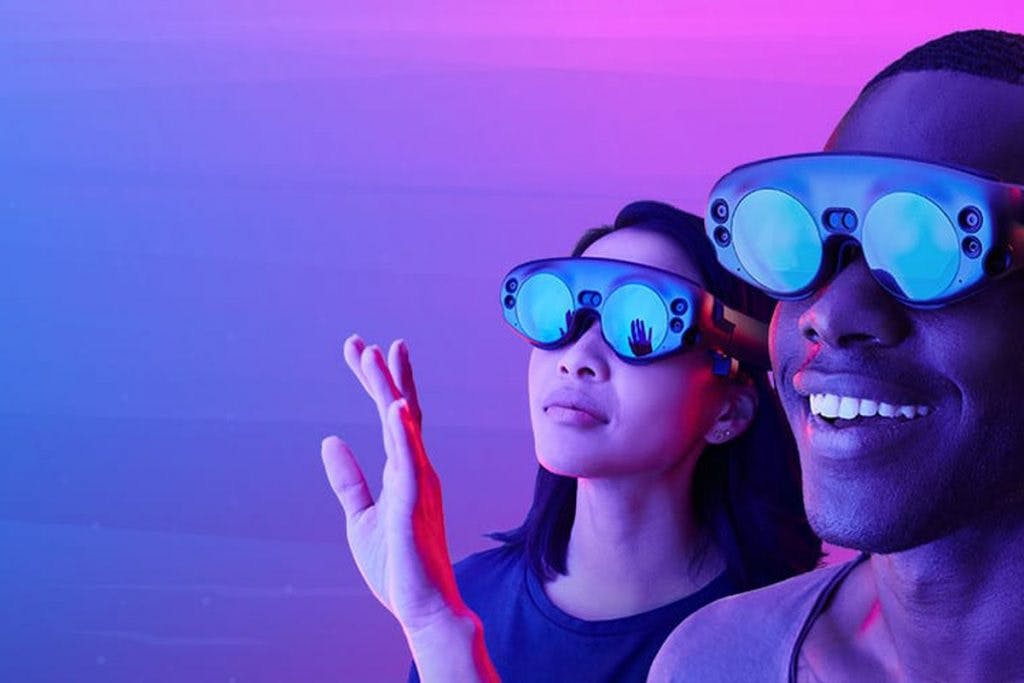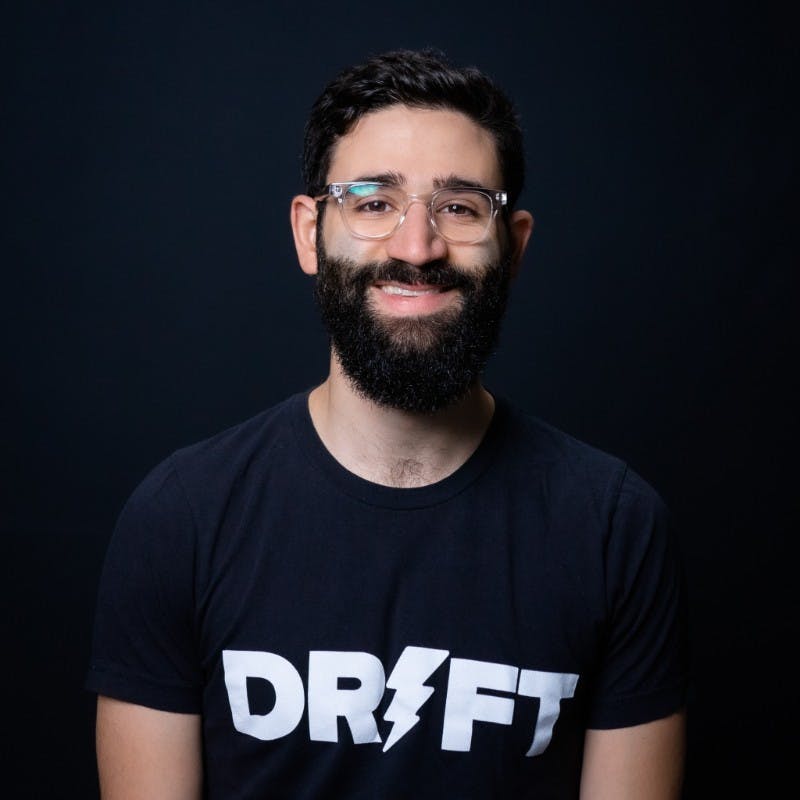Season 1 - Episode 7
Deep Diving in the VR Product World
Carlos Roqué, Product Manager at Magic Leap, shows us what it’s like to be at the forefront of innovation in the world of VR. With additional insights from his experience at Facebook and other notable companies, this week’s rundown will illuminate another compelling side of Product.

Question [00:01:05] My first question — which I’ve been asking all of our guests — is whether you ever wondered about how the biggest services and brands were developed when you were growing up, and how people interacted with them?
I did; Specifically Nike.
I thought about this question because this company always was a part of my life, and it’s probably my age now that I realized it’s the mixture of design and engineering, but they’ve also managed to achieve an affinity that people seem to have for that brand.
I’d say that Nike is probably the one brand that I did consistently think about, no matter what age I’ve been at, no matter what stage I’ve been at, they’ve managed to stick around.
Question [00:03:42] What about your academic background? How did it contribute to your current position as a PM, what did you gather from your studies?
Carlos [00:04:02] There isn’t a particular class or curriculum I would say that got me into Product Management. However, I would say that the format of my college is one that was based very heavily on questioning and answering.
This is not necessarily that you as a student pose a question to the professor and expect them to give you some elegant, thoughtful response. It’s that they expect that of the students as well. So you were in these smaller, what they called precepts, and so you had to bring your opinion, you had to defend your opinion and if your opinion wasn’t defensible, you just lost and you walked away from that.
I would sort of reflect on that and say that the question-answer format is something that I bring with me today. It ensures that if you’re willing to offer some insight, ensure that the insight is defensible, and ensure that that insight is rooted in some thought. And then some logic and math that you kind of did before you offered it to the public.
Question [00:05:40] How did you land your first Product gig at Facebook when you didn’t have much previous experience in the field?
Carlos [00:06:00] I would say it was a series of fortunate events. I had a lot of smart people that were generous with their time, and I was fortunate enough to be at Facebook at an early enough point where a lot of the structure was still coming together.

There was a lot of people that were very thoughtful and welcoming of curiosity; welcoming of a young person who was asking questions which was very appreciated. There are many smart people in and around that company that were willing to impart the knowledge that they accumulated or that they themselves had learned on the job and didn’t want people repeating similar mistakes that they’d made.
I was lucky to be able to be in a room full of smart people consistently and was able to be quiet for long enough and listen for long enough that I was able to bridge that gap very quickly. I can confidently say that it, that clip at which I learned and I’d closed would have been a lot longer if it weren’t for having been at Facebook that early, and in a position where people were willing to share their information and be so generous.
Question [00:09:20] After that, you joined Percolate, which is an enterprise services company. How did it feel to transition from this massive consumer app to a targeted business services company?
Carlos [00:09:20] There’s two forms of response for this, and one of them has to do with the minute scale. The other one’s on a larger scale, and I’ll start at the there: The sales cycle was something that forced me to reevaluate how I thought about things, how the speed at which I thought about things, and also how I expected these ideas and thoughts to materialized. And also just the way an enterprise customer might dictate terms, and if it’s a large enterprise client, you understand that you might have to pivot and reevaluate what you’d initially had as an instinct or as intuition.
So at the larger level it was just an understanding that sales cycles take time in an enterprise capacity. Having that tolerance or waterfall mentality while trying to simultaneously have this agile development cycle.
On the minute scale, the smaller one, the lesson I learned was that you had to understand that the engineering, development, and the strategy wasn’t something that could just be plugged and played. You had to be listening constantly, and though a customer might not know exactly what they want at that moment, you have to make sure to ask thoughtful, very broad questions to start to sharpen that.
The reality is that not every problem will be solved for every individual client. So when you build something, how extensible is it? How flexible is it?

If you can build something that’s a little more resilient and it’s a little broader of a solution, then how can we get that out the door to then build on top of it? How can we sharpen it and chisel it as we learn more from those from those customers?
Question [00:18:06] You worked on a variety of products in different fields like social media, medical systems, marketing tools, and now you’re in VR. What have you learned from each of these products? Was there anything you didn’t expect working in one of these sectors?
Carlos [00:18:23] I haven’t thought of it that way. I’ve certainly acknowledged and reflected on the fact that each one of these have their own elements that are unique, but across the board I would say that the style of engineering has been something that’s been fascinating and invigorating. It’s been something that I’ve appreciated considering the amount of detail that an engineer might give if we’re talking about the native mobile development and how one designs interactions.
On the enterprise side it’s about that resiliency I mentioned. It’s about building a tool that is trying to be flexible and hold up to a longer development cycle.

Within augmented reality or mixed reality, it’s these elements of designing for 3d design, or designing for multi-dimension; all those things have different implications, but design and the engineering that goes into it is something that at the, at the core of it is, is thoughtful.
There are different elements and different approaches to engineering and that delight and that design. However, at the, at the base of it, it’s making sure that the customers are at the center of it, making sure that we’re satisfying the things we set out to. Sometimes you might swing and miss, but it’s ultimately being able to come back and say, ‘okay, well what did we, what direction did we swing toward? Why did we miss?’ It’s being able to reflect on some of those failures, and ultimately, I’ve just deeply enjoyed being able to see how the styles of engineering come together across all these disciplines.

Question [00:23:56] What is it like to work in the VR space? What are you doing right now at Magic Leap as a PM? How is it different from everything that you’ve done before?
Carlos [00:24:36] I am currently the product manager for Magic Leap, which is where you go, discover, and experience the mixed reality content available today on Magic Leap. Some of the problems that we’re trying to solve is effectively how can we get that content onto Magic Leap World? How can we make that content discoverable and compelling enough that one wants to come and acquire it?
It’s developers as the primary case that we care about deeply, and making sure that we are providing the tools necessary for these developers to be able to deliver quality content, and making sure that they are able to showcase the content that they worked so hard on.
Thank you, Carlos for talking with us today!
We’ll be back next week with Jason Rados from N26 with even more of the latest insights from the Product Management world.
Listen to our episodes on your favorite platform
Stay tuned for new episodes
By sharing your email, you agree to our Privacy Policy and Terms of Service






